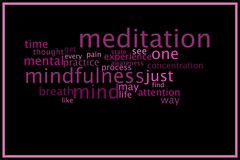The ideology behind therapeutic tools like DBT is to facilitate and encourage an emotional and psychological paradigm shift towards a more sustainable relationship to one’s mental health challenges. The foundational tenant of DBT (Dialectical Behavioral Therapy) is mindfulness training. By using core mindfulness skills, one becomes personally active in redefining their relationship to their suffering. Using these tools, one can learn to be non-reactive to their discomfort while staying emotionally present. In a nutshell, they are taking what is a learned response to stress and dismantling it. DBT teaches you how to put it back together in a healthier, more sustainable and manageable way.
Are we programmed to fix things? Is being present with “what is” simply too much? For many, the answer to these questions is a wholehearted “Yes!” We come to recovery in deep suffering, and often times, this suffering is precluded by failed attempts at “fixing” what was “wrong” with us. Substance abuse, sex, shopping, self-harming, video games, the Internet, and gambling are used as ways to mollify our pain; these things are temporary and eventually, they cease to work. What we are left with are the frayed shadows of unaddressed traumas, hurt, loss, shame, sadness, depression, anxiety, et cetera.
Redefining the way we approach our difficulties takes patience. It takes effort. It takes acceptance. It requires us to sit with our discomfort without trying to fix it or change it in any way. Imagine someone clutching something with all of their might, because letting go would be unfathomable. But their grip is so tight, what they are holding onto is crushed, creating sheer devastation and heartbreak. What if we look at our difficulties the same way: if we hold onto them so tightly, we create heartbreak and devastation. Instead, we can hold them gently, giving those same difficulties room to breathe and change.
There is no magic bullet. There is work to be done, and it takes effort and patience and support. With tremendous tools like DBT elicited by skilled clinicians, it’s clear the temperature of mental health recovery is changing; it’s more inclusive and collaborative.








